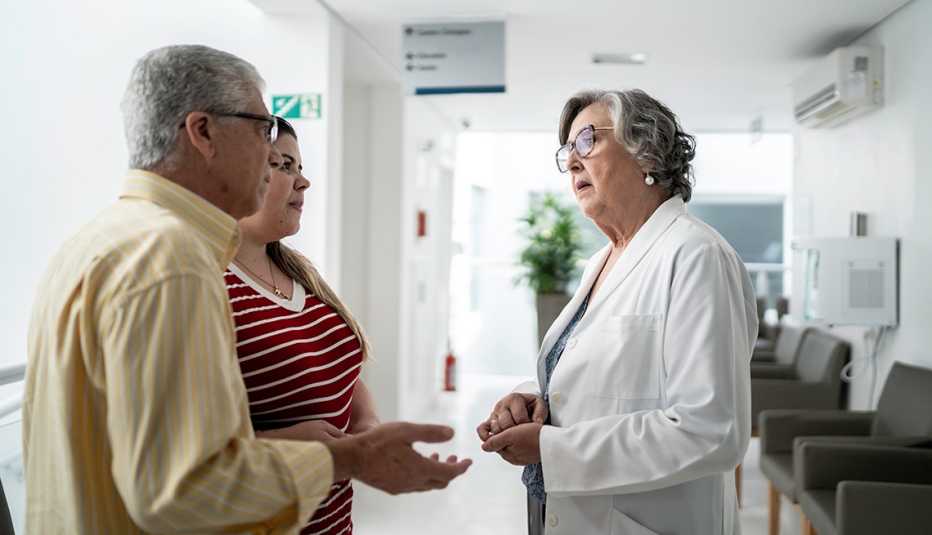Staying Fit


On a bright spring morning in the North Georgia mountains, Gene and Kathleen Mori of Atlanta were on a walk when Gene became dizzy and fell, causing him to suffer a severe head injury and lose consciousness. Due to the remote location, Gene was flown by helicopter to the closest trauma center, where doctors removed part of his skull to relieve his brain pressure.
Gene remained in ICU for 17 days before he was transferred to a hospital for acute brain injury patients. Two months later he was transferred to an outpatient facility for another two months, and while he has passed the one-year mark of this life-altering moment in 2019, he is still working toward his recovery.


AARP Membership— $12 for your first year when you sign up for Automatic Renewal
Get instant access to members-only products and hundreds of discounts, a free second membership, and a subscription to AARP the Magazine.
"You don't understand just how easily your life can change in an instant,” says Kathleen. “One minute we were enjoying family time and suddenly we were plunged into a different world.”
Processing difficult news
Thinking back on the day of the accident, she realizes she was initially in such a state of shock she didn't understand the doctors were trying to save her husband's life. “I walked in the hospital and asked how Gene was doing, and they offered to pray with me,” she recalls. “When family members finally arrived, it was such a relief because they could listen and ask questions, take notes and talk to the doctor if I wasn't quite tracking."
"The staff was firing questions at me about what medications he was on, asking for consent for surgery; things were happening so fast and I was still processing how we had gotten here from a simple walk in the mountains,” recalls Kathleen.
On the home front, Kathleen was fortunate to have had friends and family members supporting her and their three children, who were ages 19, 17 and 13 at the time of the accident. “It's hard for any child to see someone they love in pain or in a vulnerable place,” explains Kathleen. “Each of us parents differently, and I understood my children wanted to put their heads in the sand a little. I didn't want to have them sit vigil at the hospital, so I was determined to be the one to carry the yoke."
Circling your posse
Kathleen is a CPA and describes herself as someone who always likes to have the right answer. She is “fiercely independent” and was always the person other people called on when they needed to get things done. She recognized the importance of having a support system outside of the family whom she could count on when she felt fearful or tried to think too far into the future.
"You need people in your inner circle to whom you can show the broken parts and your messiness,” says Kathleen. “It was important for me to push back from the bedside and go for a walk and get a gut check with those friends or my therapist. They might not be able to fix it, but just being able to talk about it is so helpful."

































































More From AARP
When Cultural Styles Clash During Caregiving
Learn to understand the differences and find common groundAdjusting to a New Normal After Trauma or Illness
How caregivers can cope with 'ambiguous loss'